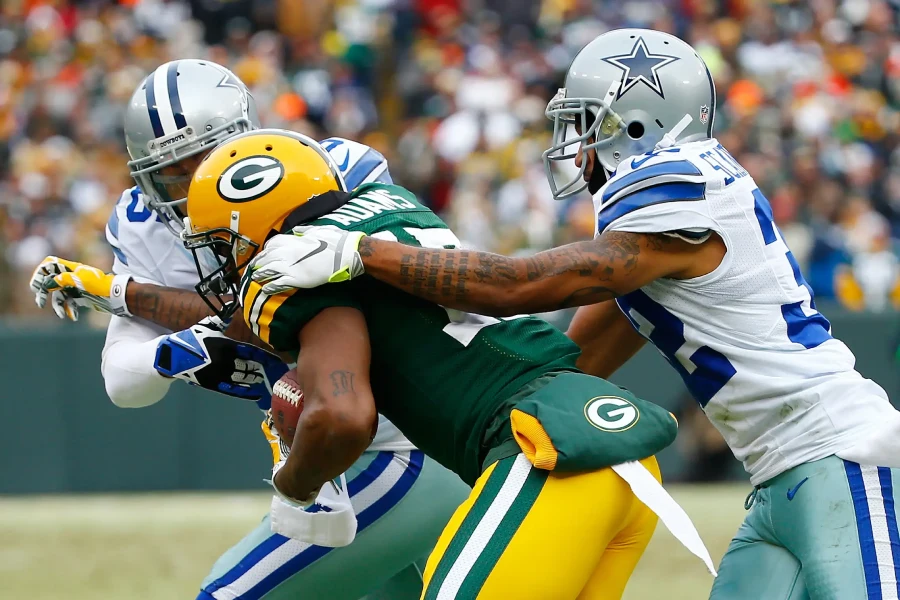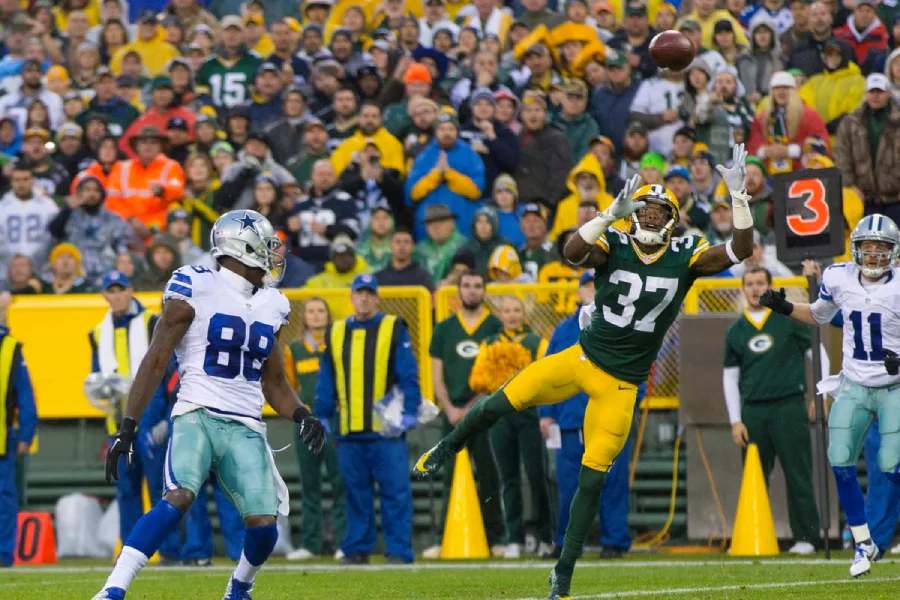The recent 40-40 tie between the Green Bay Packers and Dallas Cowboys has reignited discussions around NFL overtime rules. While fans often focus on the thrill and drama, the legal, contractual, and regulatory aspects behind such games are equally fascinating. In this article, we explore the implications of NFL overtime rules from a legal perspective, examining player contracts, team responsibilities, media rights, and the integrity of the game.

Understanding NFL Overtime Rules: Contractual and Legal Perspectives
NFL overtime rules are not just about gameplay they carry significant contractual implications. Players and teams operate under legally binding contracts that outline compensation, bonuses, and obligations during overtime periods. For instance, the time-sensitive nature of overtime can affect player pay, especially for those whose contracts include performance-based incentives.
Key Legal Aspects:
-
Player compensation during extended play
-
Injury risk and contract clauses for overtime situations
-
Team obligations under collective bargaining agreements
By understanding NFL overtime rules, teams can better navigate these obligations and avoid potential disputes over pay, liability, or contractual compliance.
Player Safety and Liability: NFL Overtime Rules in Action
Overtime periods inherently increase player fatigue and risk of injury. Recent games, such as the Packers vs. Cowboys matchup, highlighted injuries to high-profile athletes like Lamar Jackson and Malik Nabers, raising important questions about player safety under NFL overtime rules.
Legal Implications Include:
-
Duty of care owed by teams to protect players
-
Insurance coverage for injuries sustained during overtime
-
Potential claims arising from negligence or inadequate safety measures
These aspects underline that NFL overtime rules are not just a competitive concern—they are deeply tied to legal obligations that safeguard athlete welfare.
Media Rights and Copyrights: Broadcasting NFL Overtime Games
With overtime often producing historic or record-setting results, media coverage intensifies. The dramatic 40-40 tie drew massive viewership, illustrating the importance of media rights under NFL overtime rules.
Key Points:
-
Copyright ownership of game broadcasts and images
-
Licensing agreements for streaming and rebroadcasting
-
Legal restrictions on third-party use of NFL content
Understanding how NFL overtime rules intersect with media rights is essential for both teams and broadcasters, ensuring that content distribution remains compliant with copyright law.
Integrity of the Game: Rule Enforcement and Legal Accountability
The enforcement of NFL overtime rules is crucial for maintaining the integrity of the league. These rules ensure fair play and prevent disputes that could lead to legal challenges. For example, precise rule application determines whether a game ends in a tie or overtime victory, directly affecting team standings, playoff qualifications, and player statistics.
Legal Considerations:
-
Dispute resolution mechanisms in case of rule violations
-
Potential litigation or arbitration over game outcomes
-
Regulatory oversight by the NFL to enforce overtime rules fairly
The legal framework surrounding NFL overtime rules emphasizes accountability, fairness, and the protection of stakeholders’ interests.
Team Strategy and Legal Responsibilities in Overtime
The strategic decisions teams make during overtime are not just about winning they carry legal and regulatory implications. Coaches and managers must operate within NFL overtime rules, balancing aggressive play with the contractual and legal responsibilities to their players.
Strategic and Legal Factors:
-
Ensuring player safety while pursuing competitive advantage
-
Compliance with league regulations on substitutions and timing
-
Accountability for decisions that may lead to player injuries
By aligning strategy with NFL overtime rules, teams can mitigate legal risks and maintain both competitive and ethical standards.
Future Considerations: Revising NFL Overtime Rules
The growing concern about player safety, media rights, and game integrity has led to discussions about revising NFL overtime rules. Legal experts, league officials, and player associations are considering changes that could:
-
Limit overtime duration or possessions
-
Introduce additional safety protocols for extended play
-
Adjust contractual terms related to overtime participation
Such reforms would not only affect gameplay but also the legal landscape of professional football, ensuring that NFL overtime rules remain fair, safe, and enforceable.
Conclusion
The 40-40 tie between the Packers and Cowboys illustrates that NFL overtime rules are far more than a matter of scoring they touch on contracts, player safety, media rights, and league integrity. By examining these rules through a legal lens, teams, players, and fans gain a deeper understanding of the responsibilities and implications of extended play.
For legal scholars, sports managers, and avid NFL fans, the intersection of law and football during overtime is a fascinating example of how sports and law converge, ensuring that the game remains competitive, safe, and legally sound.
FAQ
1. What are the NFL overtime rules?
NFL overtime rules allow each team a possession in a 10-minute period. If the first possession results in a touchdown, the game ends. If the score is tied after overtime, the game can end in a tie during the regular season.
2. How does NFL overtime affect game strategy?
Teams adjust offensive and defensive strategies knowing each possession could determine the outcome. Coaches weigh risks like field goals versus aggressive plays based on NFL overtime rules.
3. Can NFL overtime end in a tie?
Yes, in the regular season, games can end in a tie if no team leads after the 10-minute overtime, as seen in the historic Cowboys-Packers 40-40 tie.
4. Are there legal or contractual implications of NFL overtime rules?
Yes, player contracts, bonuses, and league policies often consider NFL overtime rules, especially in cases of extended play or tied outcomes affecting team records and player stats.
5. Have the NFL overtime rules changed recently?
Yes, the NFL has adjusted overtime regulations over the years, focusing on player safety and fair opportunity for each team’s possession, highlighting the evolving impact of NFL overtime rules.

